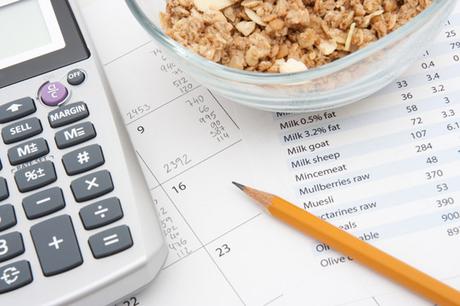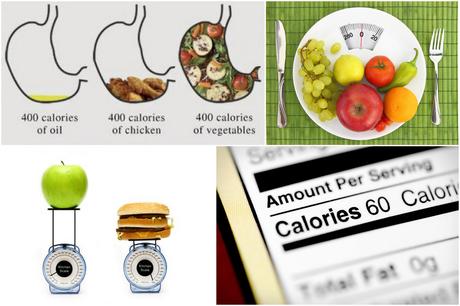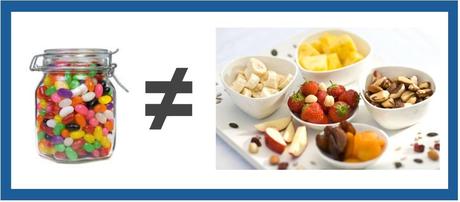
We see the word "calorie" everywhere: from food labels to nutrition articles, calories are at the center of conversations about weight loss and health.
But what is a calorie anyway?A calorie is just a measure of energy that is generated from food.
It's as simple as that. At a high level, if you eat too many calories you will likely gain weight, and if you eat too few calories, you will likely lose weight.
BUT the question remains: Are all calories created equal? And is the key to weight loss JUST about eating fewer calories? What do you really need to know about calories anyway?

That's where this post comes in

Today we are going to break down all of the myths about calories, and understand what really matters when it comes to the calories in the foods you eat.
First, let's answer the question: Are all calories created equal?Not really.
How your body uses calories depends on the quality of the food around the calorie. The foods we eat have effects on:
- Cravings
- Liver function
- The production of fat / the storage of fat in our bodies
- Our glucose, insulin and other hormonal responses
- Our gut microbiome
- Our fat-cell responses
To put it simply: hunger and weight gain are controlled by hormones, which are affected by the foods you eat.
Foods aren't just made up of calories, they are complex mixtures of fiber and other nutrients. Because of this, different foods have different effects on the hormones that control hunger and the those that tell our bodies to either burn or store fat.
So which foods tell us to store fat? Refined carbs, sugars, and processed foods all cause our insulin levels to go up, which causes our body to store (versus burn) fat. Insulin tells the fat cells to pick up fat from the bloodstream, store it and to avoid burning the fat that they already carry.
This is why all calories aren't created equal.
200 calories of jellybeans is not equal to 200 calories of fruit & nuts. The fruit/nuts are full of satisfying fiber, protein and fat, while the jellybeans are a refined sugar bomb that send your insulin levels soaring and crashing, which will make you crave a snack an hour later. Calories from fat and protein are more satisfying than refined carbs because you digest them more slowly, which signals your brain to stop eating.
Now, let's answer the question: Is the key to weight loss JUST about eating fewer calories?As you've probably guessed after reading the section above...
No! It's just not that simple. Here are the facts:- Since all calories aren't created equal, eating fewer calories (if those calories are coming from refined carbs and high sugar / highly processed foods) won't help you lose weight.
- But: If you eat 6,000 calories of only the good stuff (protein, fruits/veggies, whole grains, healthy fats), you will still gain weight because that's just too many calories for most people.
- And: If you restrict calories too much, your body goes into starvation mode (your metabolism slows down to adjust to run on fewer calories), and that makes it harder to lose weight. Also, restricting and counting calories boosts levels of cortisol, a stress hormone linked to weight gain.
Is that confusing enough for you?

Be aware of calories but stop counting! Instead focus on the quality of food you are eating, eat slowly, listen to your body, and stop when you are satisfied. Focus on lean protein, healthy fats, and un-processed un-refined carbs such as vegetables, beans, whole grains, and fruit: which help our bodies lose fat (versus storing it).
The bottom line: calories are important, but they're not the only thing that matters. The types of foods you're eating matters more, and focusing on whole foods (fruits, veggies, complex carbs, lean protein, and healthy fats) and stopping when you're satisfied is the key to losing weight.
Feed it right, and your body does a good job of managing your appetite and regulating calories without you having to count!
Tagged as: Calories, Diet, Healthy Tips, Nutrition, Weight Loss

